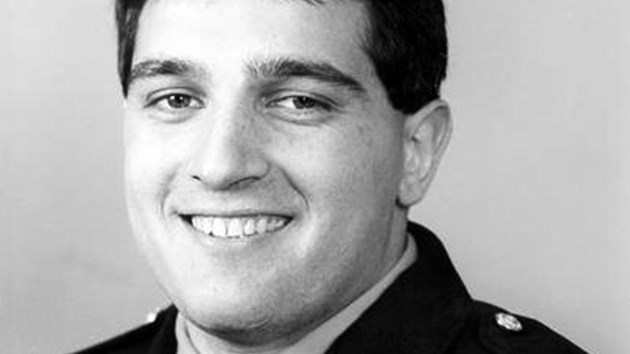Twenty-eight years ago today, on Oct. 7, 1993, Sudbury Police Const. Joe MacDonald was murdered during what at first seemed to be a routine traffic stop. His killing led to major changes in policing in Sudbury and Ontario.
Little did MacDonald know that day that his day would take him on a collision course with two dangerous offenders — Clinton Suzack and Peter Pennett.
Suzack in particular had a history as a violent offender, and had recently been released on parole. The pair had illegal drugs in the car when MacDonald pulled them over for what he thought was a routine traffic stop. The 29-year-old — with his wife, Nancy, and two young children waiting for him at home — had no idea what he was about to face.
Pennett was driving that night, with Suzack, who was wanted on a parole violation, in the passenger seat. MacDonald pulled them over on Gordon Street in New Sudbury.
The reason his guard was down when MacDonald pulled over the two men, it emerged later, had to do with communications system in use by Sudbury Police at that time, a communications system that had gaps in service, meaning the constable didn’t know what he was walking into.
The system was upgraded as a result of MacDonald’s murder.
MacDonald pulled the car over and approached the vehicle. As he began filling out the ticket, he was attacked. It was vicious.
MacDonald emptied his six-shot, .38 revolver, striking Suzack twice in the chest and Pennett once in the hand. It didn’t stop what was about to happen.
The men mercilessly beat the officer and pistol-whipped him, before shooting him dead.
A badly wounded Suzack and Pennett were able to flee. After a foot chase, they were captured and, two years later, convicted of first-degree murder. Both men are serving life sentences without parole for 25 years.
The spotty communications system was not the only thing about the local police service that changed after the constable’s killing. MacDonald's six-shot, .38 calibre revolver was no match for the firepower his killers were carrying. While he emptied his weapon and wounded his Suzack and Pennett, the revolver had to be manually reloaded.
Police have since been equipped with semi-automatic handguns that are higher calibre and easier to reload. MacDonald’s wife, Nancy, lobbied for more powerful firearms and ammunition, as well as other changes, for officers in the wake of her husband’s murder.
Four years ago, Pennett was turned down when he tried applied for temporary absences from prison.
And there was an outcry in 2001 when Suzack was moved into a medium-security prison, leading him to be transferred again. Now 56, Suzack was denied day parole yet again this past May.
In a 2017 interview with Sudbury.com, retired Sudbury police chief Alex McCauley said MacDonald's murder shocked the city.
"It hit everyone on the police force and around the community like a hammer," said McCauley, who was the lead investigator in MacDonald's murder. “The MacDonald family has had no respite from this tragedy and this is something they're going to carry with them for the rest of their lives."
McCauley said MacDonald was a good cop and popular with his colleagues.
"Joe was a really good person, he was well-liked, always happy-go-lucky, he was a great community officer and an all around good person."
Today, a bridge in Greater Sudbury has been named in MacDonald's honour. And the Joe MacDonald Football League, which started the year after he was slain, continues to thrive in the city. MacDonald was a former member of the Sudbury Spartans.
It was the idea of local football legend Sid Forster, who wanted to honour the fallen officer. Sadly, Forster himself passed away at the end of the 1994 inaugural season.
